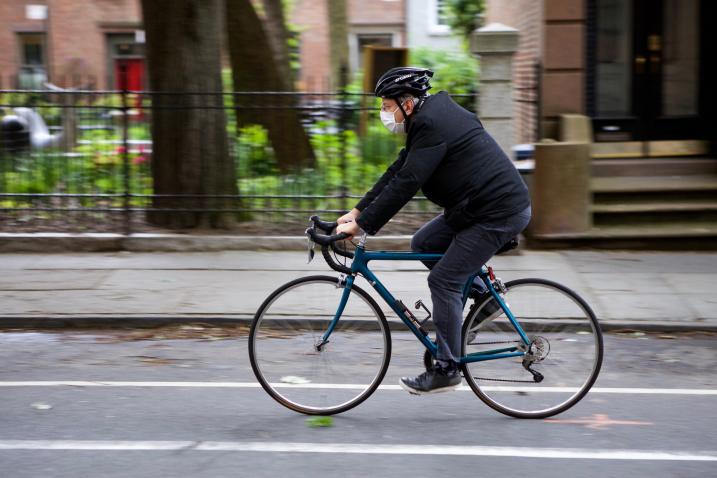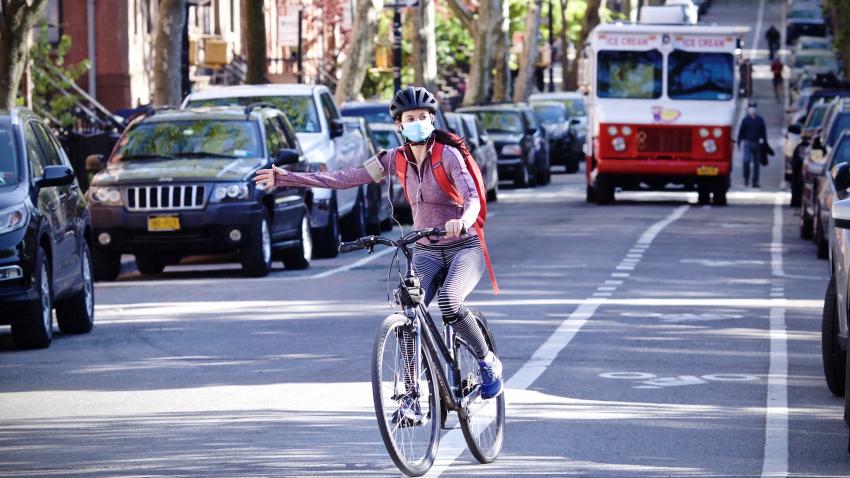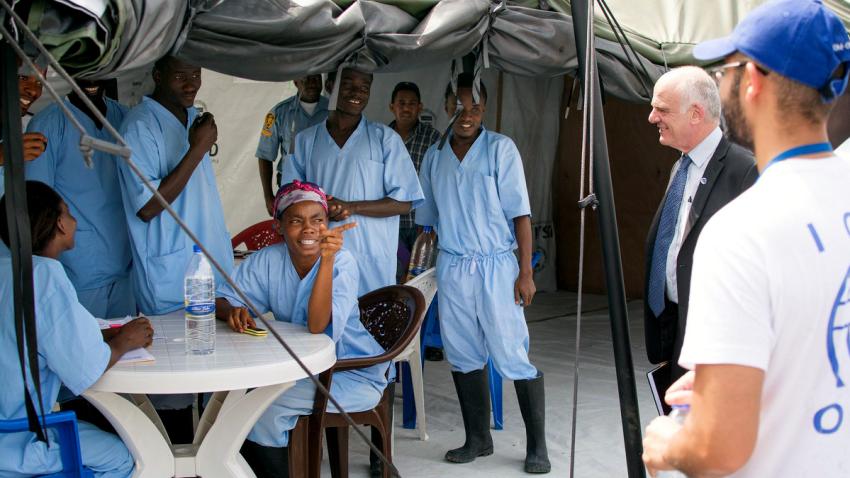22 May 2020 — Can bicycles be a solution to the challenges of the post-COVID-19 recovery? European member countries of the United Nations recently created a taskforce to take this question further and discuss ways to make post-COVID-19 mobility more environmentally sound, healthy and sustainable.
As many countries in Europe and elsewhere are starting to lift lockdowns, the United Nations Economic Commission for Europe (UNECE) sees an opportunity and obligation for the transport sector to restart in a manner that is conducive to a more efficient, greener system. “A ‘new normal’ needs to be developed to replace ‘business as usual’,” it states.
During the lockdown, city dwellers enjoyed clear blue skies thanks to cleaner air and began to hear birds sing as noise decreased. Pollution levels in Barcelona dropped by an estimated 62 per cent, and similar situations have been observed in other big European cities such as Milan, London and Paris, according to the Commission.
Public transport usage has fallen significantly as an increasing number of people choose to walk or ride bicycles to avoid crowded mass transits and follow health authorities’ advice for physical distancing. To respond to these trends, Milan, Geneva, Brussels and London have decided to invest in flexible bike lanes.

At the same time, more people are using their private cars to escape crowds. A return to the mass use of private vehicles will not allow Governments to meet their sustainable development objectives and the Paris Agreement targets, the Commission pointed out.
The new taskforce, launched under the Transport, Health and Environment Pan-European Programme (THE PEP) jointly led by UNECE and the World Health Organization (WHO) Europe, aims to resolve these concerns and develop a set of principles for green and healthy sustainable mobility.
The taskforce will comprise representatives of member States, international organizations, civil society, academia and other stakeholders, and will explore long-term and strategic changes for the sector.
The principles will be proposed for endorsement by member States at the Fifth High-level Meeting on Transport, Health and Environment, to be held next year in Vienna.
In his message on International Mother Earth Day, United Nations Secretary-General António Guterres has proposed six climate-related actions to shape the post-pandemic green recovery, which include a call to end fossil fuel subsidies.
Investing in Pedestrians and Cyclists
According to the United Nations Environment Programme (UNEP), investing in pedestrians and cyclists – who often make up the majority of citizens in a city - can save lives, help protect the environment and support poverty reduction.

The agency’s Emission Gap Report (2017) states the world must urgently and dramatically scale up action in order to cut roughly another 25 percent off predicted 2030 global greenhouse emissions and have any chance of minimizing dangerous climate change.
Meeting the needs of people who walk and cycle continues to be a critical, yet overlooked part of the mobility solution for helping cities separate population growth from increased emissions, and improve air quality and road safety.
To address this, the Share the Road Programme, a joint initiative of UNEP and the Fia Foundation for the Automobile and Society, highlights best practices and works with governments around the world to prioritize the needs of pedestrians and cyclists.
World Bicycle Day
In a few weeks, on 3 June, the world will observe World Bicycle Day, established by the General Assembly in acknowledgment of the uniqueness, longevity and versatility of the bicycle, which has been in use for two centuries. An affordable, reliable and sustainable means of transportation, the bicycle fosters environmental stewardship and good health, providing a cost-effective form of transport while reducing the risk of heart disease, stroke, certain cancers, diabetes, and even death, according to the World Health Organization.
To spread awareness about its many benefits, the United Nations encourages Member States to develop a culture of cycling and organize initiative like national and local bike rides, while promoting pedestrian safety and cycling mobility.




